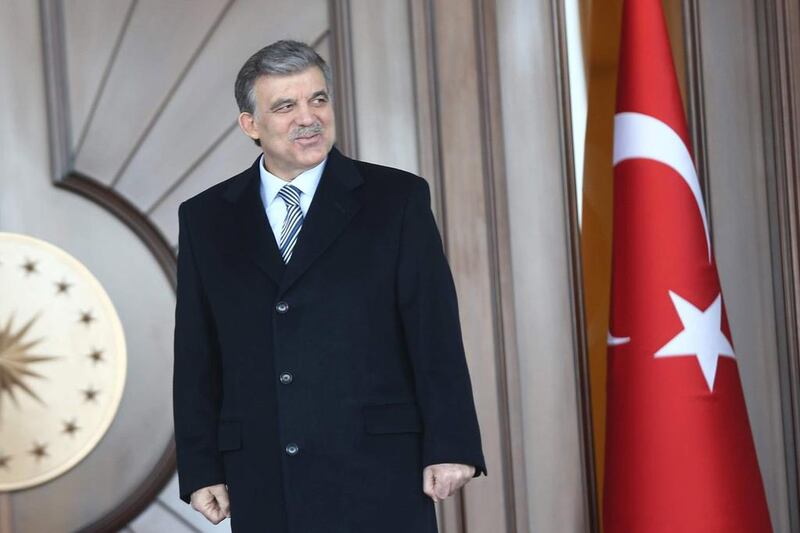Turkey’s president has remained quiet amid a political battle between the country’s ruling party and followers of a powerful religious leader, which has shaken the government.
Abdullah Gul’s reticence appeared to come to an end on Tuesday however, when he said Turkey should “recalibrate our diplomacy and security policies” given what is happening in Syria and the spillover on Turkey’s southern border.
While his comments overtly called for a shift in Turkey’s approach to the war in Syria, they have also been interpreted as a call for calm between Recep Tayyip Erdogan, the prime minister, and Fethullah Gulen, head of the vast and powerful Gulen movement.
With the stakes rising ahead of municipal elections in March, Mr Gul believes now is the last chance for compromise.
The clash between the former allies started when Mr Erdogan ordered the closure of Gulen schools in November 2013. Using its members in the police and judiciary, Mr Gulen hit back with a sweeping corruption investigation in December that has implicated dozens of Mr Erdogan’s associates.
The probe has left Mr Erdogan facing one of biggest challenges of his 11 years in power.
Mr Gul’s attempt to diffuse dispute came after the latest flare-up.
On Tuesday morning, security forces raided an office of the Humanitarian Relief Foundation (IHH), an aid organisation close to the government, confiscating computers and documents, and detaining a relief worker.
The raid in the town of Kilis near the border with Syria was part of a countrywide operation against Al Qaeda suspects.
IHH denied any link to Al Qaeda, blaming the raid on Mr Gulen’s followers and a pro-Israel lobby.
Many in Turkey believe the raid on the charity’s office was seen as the Gulen movement trying to reveal Mr Erdogan’s closest-held secrets, particularly in relation to his support for Syrian rebels.
The charity was one of the first organisations allowed to take aid into Syria from southern Turkey, along with supporting refugees in the border area.
But IHH has also allegedly helped intelligence agents transport weapons for the opposition fighters. Ankara’s support for the rebels is unpopular in Turkey because it is seen as endangering Turkish citizens and empowering religious extremists.
This is not the first time IHH has been caught up in a disagreement between Mr Erdogan and Mr Gulen.
Mr Gulen criticised the charity’s 2010 attempt to break Israel’s blockade of the Gaza Strip, which resulted in nine activists being killed when Israeli commandos stormed the MV Mavi Marmara.
Revelations of Mr Erdogan's support for Syria's rebels are not new. But by persisting in targeting Mr Erdogan's allies, Mr Gulen could push the confrontation with the combative premier to a point that would endanger the stability of the country.
The widely respected Mr Gul knows this, and by implicitly admitting a miscalculation in policy towards Syria he has sought to present the government as willing to compromise.
In the past week he has met opposition leaders and key members of the ruling Justice and Development Party in a bid to find a way out of the crisis.
If Mr Gul manages to lead the country out of its current turmoil it would boost his prospects of a second presidential term in elections later this year. Mr Erdogan, who under Turkish law cannot stand for another term as prime minister, has not yet said whether he will also try to run for the presidency.
jvela@thenational.ae





